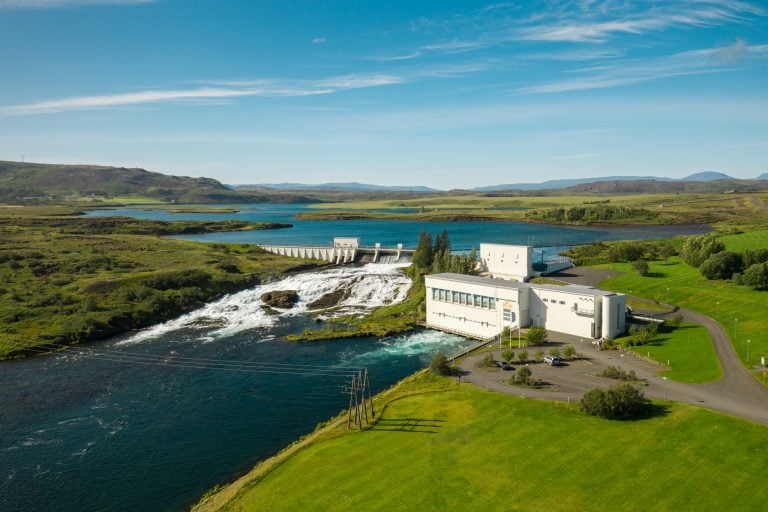Landsvirkjun: Taking on Climate Change with Renewable Energy and Green Production
Developing solutions for emerging green energy opportunities
Green energy-intensive industries are critical in the fight against climate change, and Iceland-based Landsvirkjun is actively working toward solutions to supply renewable energy into this market. “The international opportunity in renewable energy and industrial production more generally is to fully take on solutions that mitigate climate change”, said Ríkarður Ríkarðsson, Executive Vice President of Business Development and Innovation at Landsvirkjun. “That really is what the renewable industry is trying to achieve internationally.” Iceland has numerous opportunities for business in green energy industries, including data centres, manufacturing batteries, food production and increasing production of environmentally-friendly electrofuels (e-fuels). “Landsvirkjun is actively developing its capabilities to develop and supply renewable energy solutions to future green industries”, he said.
Producing environmentally-friendly fuels
In order to reduce greenhouse gas emissions, more green-energy sources need to be found. The production of green fuels, such as hydrogen or other e-fuels in the form of e.g. ammonia, methanol or methane is a central example of the many green opportunities waiting to be seized. “E-fuels are emerging as a likely huge sector”, said Ríkarður. “The strain on earth’s resources and climate is too great with our current paradigm of relying on fossil fuels for energy and massive land and freshwater use to support our food production. This needs to change and evolve into a future system where we significantly increase renewable energy generation while reducing fossil fuel, land and freshwater use. This is a necessary tradeoff and balance we need to achieve to realise sustainable development. Roughly two-thirds of Europe’s emissions can be addressed and managed through use of e-fuels. The remaining one third can be addressed through direct electrification and batteries. Both e-fuels and electrification rely on large increases in renewable energy generation.”
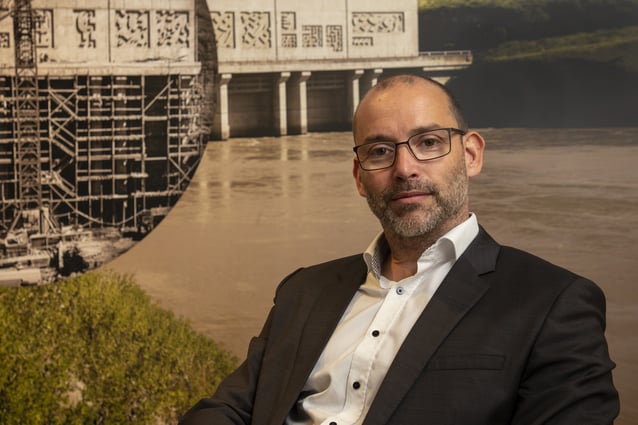
As noted, hydrogen and e-fuel production require a great amount of energy, and the demand for green hydrogen is expected to increase in the coming years. According to Iceland’s energy policy, the country intends to be free from using fossil fuels as the main energy source for transport by 2050. Iceland and other nations are in a position to benefit greatly from this development in economic, social and environmental terms. In Iceland, green fuel production will decrease petrol and diesel imports which leads to reduced greenhouse gas emissions and foreign currency reserve savings for the national economy. Over time, Iceland could become completely energy independent.
Data centres
In Iceland, the data centre industry is well established and has been growing rapidly in recent years. A large reason why is the fact that the country is proven to mitigate risks, ensuring secure and stable operations for data centres. In recent years, Landsvirkjun has signed agreements with several international data centre service providers to supply certified and competitive renewable energy. These operations utilise 100% renewable hydroelectric, geothermal and onshore wind energy that allows them to provide certified green data services to their respective customers and end-users.
Iceland has a young, educated and internationally-minded workforce, with high site availability and favourable business conditions, making Iceland an increasingly compelling option for data centres. The combination of competitive natural and human resources means there is strong potential for continued data centre growth and associated job and value creation in Iceland.
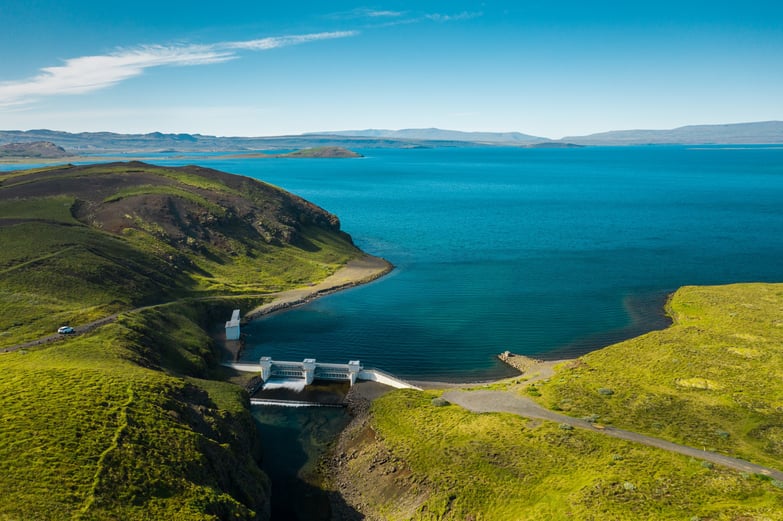
Battery manufacturing
Battery manufacturing is another interesting opportunity as the number of electric vehicles is growing rapidly and exponentially, which calls for a significant increase in the production of batteries. Numerous battery manufacturers are currently looking for suitable production sites across Europe and Iceland has attracted attention with potentially competitive sites.
Iceland’s advantage
Land is a big issue when it comes to renewable energy. “Land use is essential for producing competitive renewable energy and green energy carriers such as e-fuels”, said Rikarður. “Therefore places that have the combination of land and infrastructure to build on have an opportunity and Iceland is one of those countries.” Iceland has great hydro and geothermal resources, but also a fantastic wind resource which, if harnessed, has the potential to competitively serve the island’s future renewable energy needs to accomplish total energy transition and independence as well as potential for export. “The land-use percentage for renewable energy generation in Iceland is currently around 0.3-0.4% while in Norway and Denmark it is around 1.5-2%”, he said. “If we go for land utilisation percentages similar to our neighbours in Norway and Denmark, we could become 100% renewably powered and help other countries get closer to the same goal of full energy transition.”
Fighting climate change
There are three main solutions to combatting climate change. “The first and most impactful is to significantly increase renewable energy generation as we need to switch over to renewable energy and away from fossil fuels”, said Rikarður. “Secondly, society needs to reduce the carbon footprint of production, thereby reducing our consumption footprint, using innovation and new or revised production processes. The third solution is capturing and using or disposing of the remaining carbon dioxide emissions. “These three factors are absolutely crucial for us to manage and master to get to a carbon-neutral future”, said Rikarður. “If we can do this efficiently, we will solve climate change.”
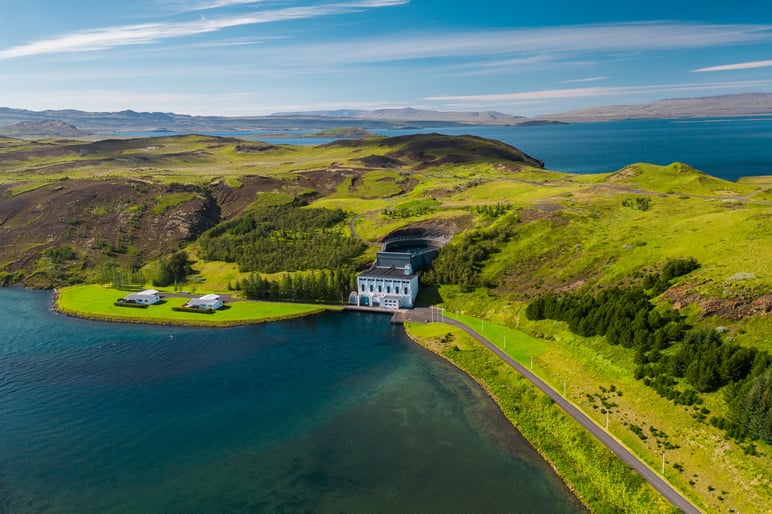
There are huge investment opportunities in the renewable energy and carbon management sectors. “There is an ongoing massive transformation”, he said. “We want Landsvirkjun, Iceland and our partners to capture a share in these emerging and high-growth green energy markets while remaining competitive. We envision a future including our current customers and partners as well as new e-fuel customers, battery manufacturers, food producers, and data centres. Hopefully, people connect to this vision in mind and spirit, seeing this will bring three key things most of us want for the future—clean air and water, a stable climate, and meaningful employment opportunities for us and the next generations. This is how we sustainably strengthen our society, environment and economy and ultimately improve our quality of life.” – JG
-
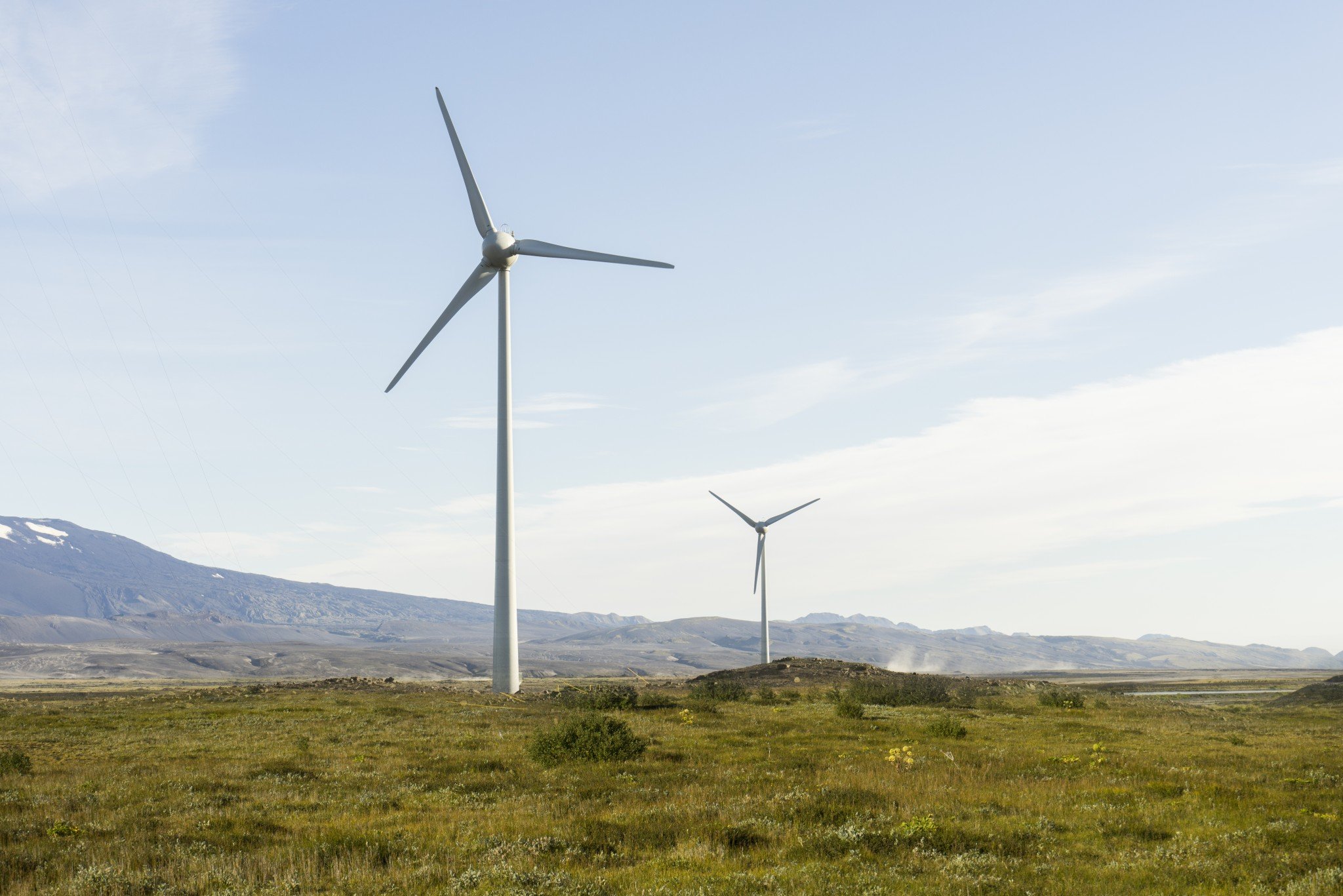
The area where Landsvirkjun has operated two wind turbines as an experiment is called Hafið or the Ocean. Landsvirkjun may build a wind farm in the lava field and sandplain east of Þjórsá as well as Hafið. -
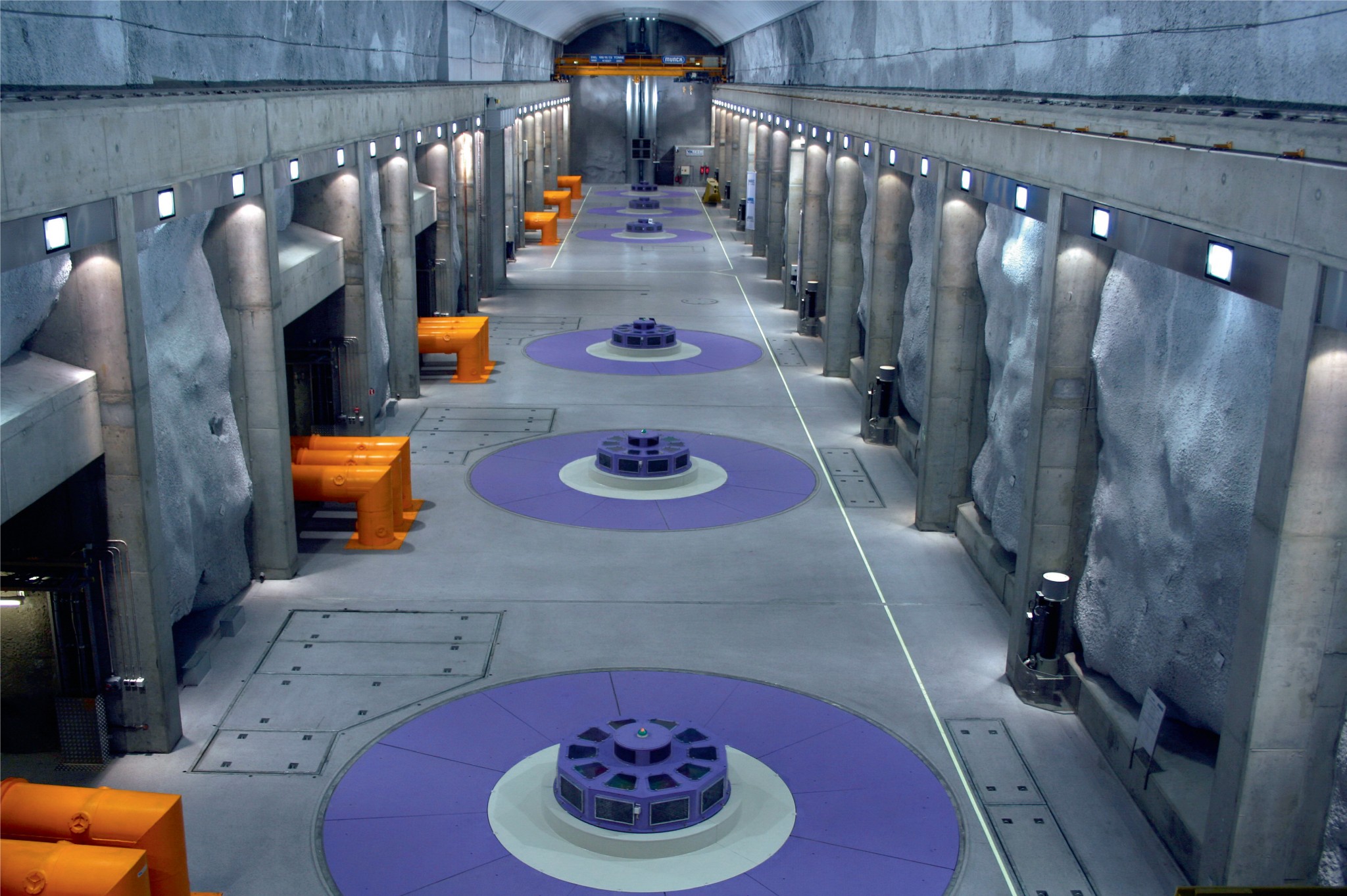
Turbines in Fljótsdalsstöð, the biggest hydroelectric plant in Iceland

